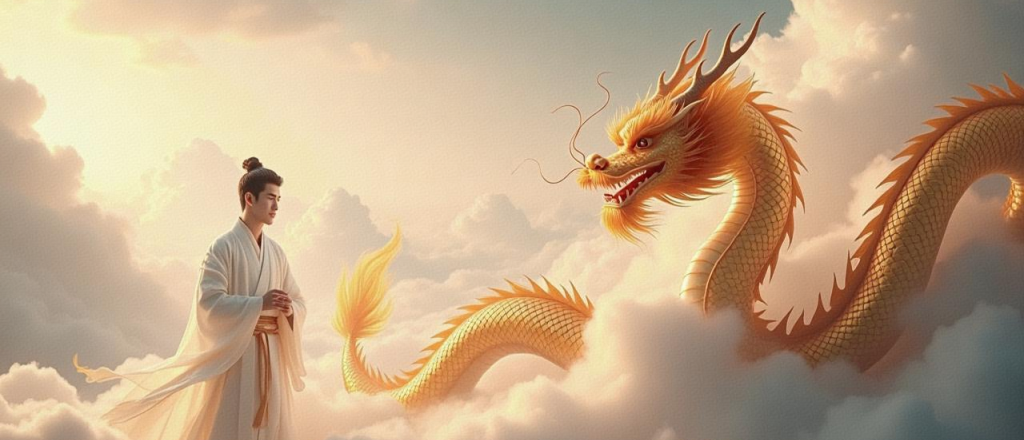
The rise of the internet novel has introduced millions of readers worldwide to the captivating worlds of Chinese fantasy. These stories, born online and spread globally through translation, offer a unique blend of martial arts, magic, and epic quests. However, for many new readers, the sheer number of unfamiliar names and titles can be a confusing barrier to entry. Beyond just being a label, a name or title in these novels often carries deep cultural significance, revealing a character’s social status, power level, or even their entire life story.
This guide will demystify the naming conventions, showing you how understanding them will make your reading experience much more immersive and enjoyable. We’ll show you why reading on a dedicated novel website is the best way to get the full, untainted story.
The Anatomy of a Chinese Name in Internet Novel
Unlike many Western naming systems, a character’s name in a Chinese fantasy novel is a multi-layered identity that can evolve throughout their life. It’s a key part of the character’s journey.
The Family Name (姓, xìng) and Given Name (名, míng)
This is the most straightforward part. The family name, or surname, comes first. For example, in “Lin Dong,” Lin is the surname. The given name, Dong, often holds a specific meaning, such as “east” or “winter,” and can be a hint about a character’s personality or destiny.
The Courtesy Name (字, zì) and Pseudonym (号, hào)
In ancient China, once a person came of age, they would be given a courtesy name by their parents or master. Only close friends and superiors would use this name as a sign of respect. Additionally, a powerful cultivator might adopt a pseudonym. In many Wuxia and Xianxia stories, these pseudonyms add to a character’s mysterious aura, and you’ll often only learn their true name much later in the story.
[Image: A simple infographic illustrating the structure of a Chinese name, showing “Family Name + Given Name” and “Courtesy Name/Pseudonym” with brief explanations for each.]
Decoding Titles of Power and Status
The most crucial part of understanding these novels is grasping the meaning behind a character’s title. These are not just labels; they are social ranks, power levels, and sometimes even a warning to their opponents.
Social and Hierarchical Titles
These titles define a character’s place in society or a specific sect. Understanding them helps you instantly recognize the power dynamics between characters.
- Shīzūn (师尊): The most common title for a respected master.
- Gōngzǐ (公子): Literally “son of a lord.” This title is used for a young, well-born man, often from a prominent family.
- Zhǎng lǎo (长老): An elder, usually a high-ranking member of a sect or clan, holding significant authority.
Ranks and Monikers
As a character progresses through their journey, their title will change to reflect their growing power. A character might start as a simple “Martial Apprentice” but ascend through ranks to become a “Martial Master,” then a “Martial Sovereign,” and so on. Understanding this progression is key to appreciating their growth. Sometimes, a character is simply too powerful or notorious to be called by their birth name. They earn a moniker based on their signature ability, weapon, or terrifying reputation. “Sword Saint” or “Poison Emperor” are classic examples.
This is a core aspect of what makes translated Chinese novels so addictive, as you follow the protagonist’s rise to power.
A Tale of Two Genres: Wuxia vs. Xianxia
While the naming conventions share similarities, there are subtle but important differences between genres.
- Wuxia (武侠): Wuxia stories, focused on martial arts heroes, tend to have names and titles that are more grounded in reality, reflecting historical settings and martial arts traditions. Titles like “Sword God” are powerful, but they operate within the laws of the physical world.
- Xianxia (仙侠): Xianxia, or “immortal hero” stories, introduce elements of cultivation, immortality, and fantastical creatures. The titles here are far grander and more cosmic. A character might be called “Daoist Immortal” or “Cosmic Emperor.” These names reflect a mastery over reality itself and are a key differentiator of the genre.
For more information on the distinctions between these genres, you can visit the Wuxia Wiki to explore the nuances of Wuxia and Xianxia literature.
Our Commitment to High-Quality Translation
Translating these complex names and titles is one of the biggest challenges we face. A poor translation can strip a character of their depth and a story of its atmosphere. Here at our site, our team of translators and editors works meticulously to ensure that every name, title, and term is handled with care. We use a combination of direct translation, Pinyin with clear explanations, and careful cultural contextualization. Our goal is to make these incredible worlds as accessible and enjoyable as possible for you. The high quality of our translated Chinese novels is what sets us apart.
We hope this guide has given you a clearer understanding of the profound role names and titles play in Chinese fantasy. The next time you pick up an internet novel, you’ll not only follow the thrilling plot but also appreciate the deeper meanings behind the words. Happy reading! Don’t forget to explore our extensive library on our novel website to find your next great adventure.
